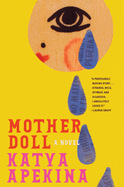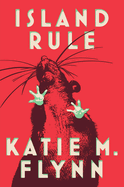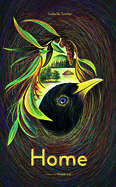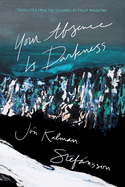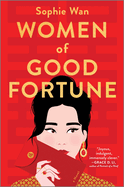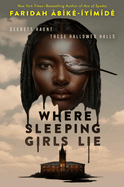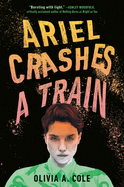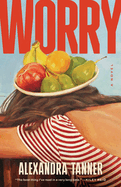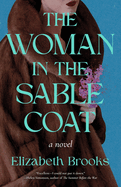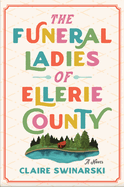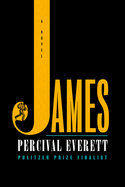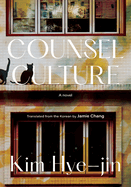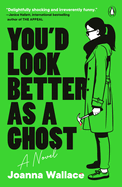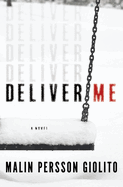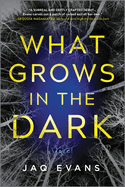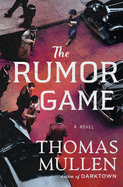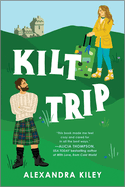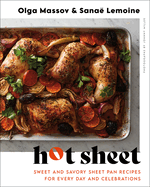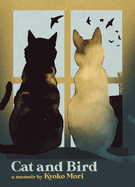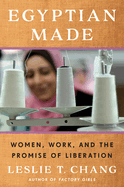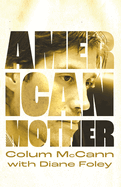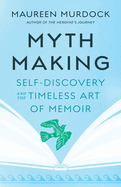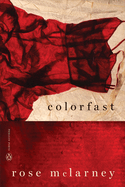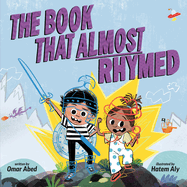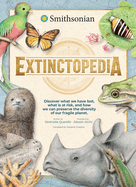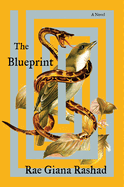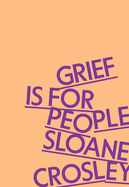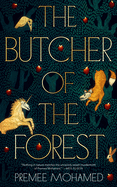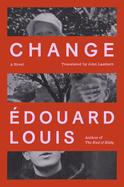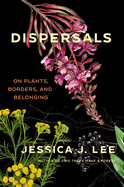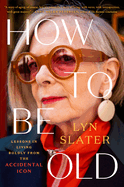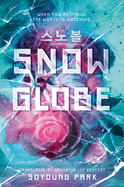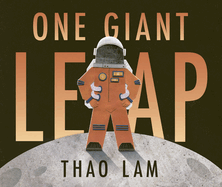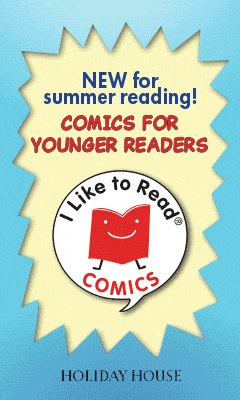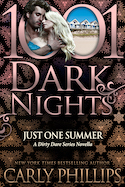Week of Friday, March 29, 2024
Among this week's array of recommended reading, we cover Island Rule, a collection of 12 interconnected stories by Katie M. Flynn, which might just convince you that "monsters are everywhere" while telling "a grander story of humanity"; and Women of Good Fortune by Sophie Wan, "an elaborate heist novel featuring a reluctant bride turned reluctant thief as she plans to rob her own wedding." Plus, the poems in Isabelle Simler's children's book Home "combine imagery and habitat facts in a clever, often playful voice that encourages readers to see the wonder and fun of the natural world."
In The Writer's Life, Katya Apekina, author of Mother Doll, discusses how she wrote a ghost story where the "haunting and scary stuff that happens... is more about abandonment and generational trauma. And it's also probably more funny than scary in some ways."
Mother Doll
by Katya Apekina
With her debut novel, The Deeper the Water the Uglier the Fish, Katya Apekina proved willing to stretch beyond readers' expectations. Mother Doll displays a similar defiance of norms as it deftly tangles with history and memory and generational trauma. Apekina's confidence is evident from the book's first line: "It was ironic that Zhenia and Ben would come home from spending time with people who had kids and be so giddy with relief and self-righteousness over their decision not to have any that it would make them want to fuck." More ironic is that this giddy act results in a pregnancy that threatens everything Zhenia thought she wanted.
Mother Doll turns away from that domestic crisis in chapter two, plunging readers into a shadowy afterlife world with this introduction: "We are an undifferentiated cloud. We are all dead and none of us have been able to move on. We talk at once. We are aggrieved. Our chatter is endless." This liminal space, reminiscent of that in George Saunders's Lincoln in the Bardo, is where the medium Paul encounters Irina, who explains, "I died at ninety-six on Long Island. But by then it wasn't me who died... I am the part of her that she never successfully buried." Irina is seeking a kind of absolution, which she hopes to accomplish by telling her great-granddaughter, Zhenia, her story, rooted in the atrocities of the Russian Revolution of 1917. Moving fluidly between Zhenia's present and Irina's past, Mother Doll is a startlingly sharp and affecting novel, exploring notions of motherhood, desire, and possession. --Sara Beth West, freelance reviewer and librarian
Your Absence Is Darkness
by Jón Kalman Stefánsson, transl. by Philip Roughton
Icelandic author Jón Kalman Stefánsson is relatively unknown in the United States, despite years of international success, including a Booker Prize nomination for Fish Have No Feet. With Your Absence Is Darkness now available in English (via translator Philip Roughton), Stefánsson offers a weighty yet light-saturated novel sure to leave a lasting impression. It is poetic and elegant, employing an unexpected structure that layers short sections in the way a sound engineer combines individual audio tracks to create a cohesive song. And it all starts when a man wakes up on a church pew and realizes he doesn't know where--or who--he is.
The residents of this remote town in northern Iceland know him, however, and easily slip into telling him their stories. He is, it seems, a writer, one with an uncanny ability to stop time and access family histories that demand to be recorded, urging him on: "Write. And we won't forget. Write. And we won't be forgotten. Write. Because death is just another name for being forgotten."
Music provides a throughline for this novel, found in both the lively musicality of Roughton's translation and in the repeated references to popular songs, collected as Death's Playlist. It's also present in the way the novel plays with form, with headings that feel like song titles, and the way elements recur like a familiar refrain. Readers will recognize themselves in the various ways the characters embrace fate and chance, regret and loss, sex and--yes, always--love. --Sara Beth West, freelance reviewer and librarian
Women of Good Fortune
by Sophie Wan
Sophie Wan's Women of Good Fortune recalls the extravagant wedding fanfare of Crazy Rich Asians and the minute-by-minute scheming of Ocean's Eleven in an elaborate heist novel featuring a reluctant bride turned reluctant thief as she plans to rob her own wedding.
According to her mother, Lulu is a "leftover woman," unmarried in her late 20s and with no relationship in sight. But when a short romance turns into an unexpected engagement to one of the richest bachelors in Shanghai, Lulu finds herself caught up in planning an over-the-top wedding to a man she doesn't love with a future mother-in-law she absolutely despises. Her two best friends are no happier, despite their different circumstances: Rina works grueling hours to save up enough money to freeze her eggs, and Jane is dissatisfied with her appearance and married to a frugal man who pays her no attention. All three are stuck, confined not only by the expectations placed upon them by Chinese society and their well-intentioned families, but by the money required to chart their own paths in life. With a combination of audacity and desperation, the three decide to steal the cash gifts from the center of Lulu's upcoming wedding. "We're going to make this wedding our bitch," Jane says to her friends. "And I have just the plan."
That plan forms the core of Women of Good Fortune, and the story's urgency will keep readers captivated. But it is what these women learn along the way--about themselves and about one another--that gives the novel its heart, as the three must reconsider what happiness might actually look like, money or no. --Kerry McHugh, freelance writer
Worry
by Alexandra Tanner
A darkly comical literary debut, Worry by Alexander Tanner follows a millennial pushed to the brink by a world of absurdity and her own vacant response to it, in a timely mashup of Ottessa Moshfegh's desensitized characters and Sally Rooney's attention to complex social (de)attachment.
It's 2019, and the world is on the verge of Covid-19, but no one knows it yet. Twenty-eight-year-old Jules is living alone at the end of a once-serious relationship, doom-scrolling mommy-blogger content, and focusing on her anxiety to avoid writing. When her younger sister, Poppy, comes to stay indefinitely, Jules has a new annoyance to fixate on. Jules is the only one who knows that Poppy attempted suicide last year, and with Poppy's lifelong hives flaring up again, Jules is primed to see her sister as a walking problem. Soon, the whole world seems to be spiraling into chaos, with Jules's judgmental mother latching onto online conspiracy theories and Poppy becoming obsessed with her new, three-legged, adopted dog, Amy Klobuchar. Amidst it all, Jules likes to imagine she's the only sane one, and yet sanity begins to feel increasingly like detaching herself from everyone she loves (hates), including Poppy.
Worry is a time capsule of a novel that captures a moment not yet over. The details Tanner infuses in Jules's world are both recognizable and surreal, an uncanny, funhouse mirror of reality. Consuming this novel in a world no longer on the brink of disaster but deep in the abyss of it, readers will find themselves familiar with the chaos, and both startled and touched by Tanner's depiction of it. --Alice Martin, freelance writer and editor
The Woman in the Sable Coat
by Elizabeth Brooks
Icy winds buffet the ocean liner as Nina Woodrow contemplates jumping to her death. Elizabeth Brooks (The Whispering House) opens her complex fourth novel, The Woman in the Sable Coat, with this foreboding prologue, set in 1946, which is followed by chapters shifting back to 1934.
Nina, 14, and her widowed father live in a bucolic English village where she and her friend Rose meet neighbors Guy and Kate on a summer afternoon. Kate is pregnant, but Guy and his friend Joey unashamedly flirt with the teenagers. The awkward evening that follows sets up the course of the next 12 years. Both Nina and Guy enter the Royal Air Force when World War II erupts, leaving Kate and her son in the village, where Mr. Woodrow also waits out the war. Alternating chapters from Nina's and Kate's points of view heighten suspense as their stories reveal the plot twists that, unbeknownst to them, link their lives. The duplicitous Guy, enigmatic Mr. Woodrow, and self-absorbed Joey each harbor secrets impacting the women.
In Brooks's psychological thriller, war is a backdrop to the more personal deceptions creating danger and heartbreak. A sense of unease permeates the novel, through Nina's father's evasiveness about the family's past and the curiously deep bond between Guy and Joey. The post-war feeling of relief in 1946 doesn't liberate Nina, Kate, and Rose from the trials they've endured, but each woman displays a tenacious fortitude, suggesting hope for a hard-won secure future. --Cheryl McKeon, Book House of Stuyvesant Plaza, Albany, N.Y.
The Funeral Ladies of Ellerie County
by Claire Swinarski
With The Funeral Ladies of Ellerie County, Claire Swinarski (What Happened to Rachel Riley?) presents her first adult novel, a poignant yet refreshing story centered on the bonds of family, food, faith, and small-town communities.
At the helm is Esther Larson, an 82-year-old Wisconsin widow, mother, grandmother, and "the nicest lady in the world. The definition of salt of the earth." Esther and a group of local women, known as the "funeral ladies," have shared a bond for decades, providing luncheons for the bereaved in the basement of St. Anne's Catholic Church. When the funeral ladies learn that Esther's been conned out of $30,000, they--along with Esther's family--devise a plan to write a local cookbook. Can they raise enough funds to save Esther's home?
Along the way, Esther serves a pie at the funeral for the wife of celebrity chef Ivan Welsh that wows him enough to take notice. After Ivan and his Chicago-based adult stepson, Cooper, and Cricket, the 13-year-old daughter Ivan shared with his late wife, visit the town for the burial, they decide to stay. They rent an Airbnb from Esther's granddaughter Iris, who falls for Cooper, a former paramedic who now works "flipping pancakes" at the local diner. However, Cooper harbors a secret that impinges upon his life. Will it affect Iris's life, too?
Swinarski threads the answer throughout serious themes--underscored by tenets of love, acceptance, and forgiveness--throughout this tenderly drawn story that holds multigenerational appeal. --Kathleen Gerard, blogger at Reading Between the Lines
James
by Percival Everett
To those who think that artists do their best work before age 50, meet Percival Everett (Dr. No; So Much Blue; Percival Everett by Virgil Russell). He has produced some of his greatest fiction since he passed the half-century mark, including James, his hilarious yet angry reimagining of Mark Twain's Adventures of Huckleberry Finn. Everett upends decades of scholarship on Twain's novel by telling the story from Jim's--now James's--perspective. Major characters from the original are here but with diminished emphasis, while minor figures--primarily James's wife, Sadie, and his daughter, Lizzie--take on greater resonance. By James's side again is Huck, going to great lengths to fake his death and avoid his abusive drunk of a father, while James, fleeing from Hannibal, Mo., vows to secure his family's freedom when he overhears plans to sell him to a man in New Orleans.
In making James the narrator, Everett cleverly addresses ruses intended to make white people feel good, such as when Black people speak with correct diction in one another's company but use stereotypically poor syntax--James calls it "correct incorrect grammar"--whenever white people are around. That James occasionally slips up and confuses white people with his proper diction is only one of many brilliant details, as is the introduction of characters such as Daniel Decatur Emmett, who founded the Virginia Minstrels and hires James, "a slave of light-brown complexion," to don blackface and replace their lost tenor. Clever plot developments and a satisfyingly violent conclusion make James yet another late-career triumph from one of America's most original authors. --Michael Magras, freelance book reviewer
Counsel Culture
by Kim Hye-jin, transl. by Jamie Chang
Award-winning Korean author Kim Hye-jin's sublime sophomore title-in-translation, Counsel Culture, is the spare, intense study of a woman in crisis, a subject Kim so strikingly presented in her 2022 Anglophone debut, Concerning My Daughter. She reunites with translator Jamie Chang, who again skillfully mirrors Kim's clean, affecting prose.
"Haesoo follows a regimented routine," waking, eating, and tidying at regular hours. Before dinner, she writes letters she abandons mid-sentence, which reveal the troubling details of her isolation. She takes the pages with her on evening walks, returning home only after destroying her "scrupulously worded" missives. Careful habits help her not "abandon hope that she will recover the inner self she had before." Haesoo was once a respected therapist and regular television talk-show commentator. During one such appearance, she made careless remarks--while following a studio's script--about a badly behaved actor who later died by suicide. Social media condemned Haesoo as his murderer, imploding her career, her personal relationships, her very sense of self. A feral stray cat and a neighborhood 10-year-old child named Sei disrupt Haesoo's insulated schedule and prove to be mutual catalysts for healing.
Originally published in Korea in 2022, Kim's original Korean title implies listening carefully, a faltering skill under social media's relentless ubiquity. Chang's sly, clever English title does double duty, acknowledging both therapy and cancel culture. Silencing looms throughout: Haesoo's downfall, predominantly, but also the bullying and neglect that young Sei endures as well as the casual cruelty helpless animals suffer. Remarkably, Kim avoids both didactic pronouncements and simplistic solutions, gifting audiences a thoughtful, multilayered exploration of unexpected, restorative connections. --Terry Hong
Mystery & Thriller
You'd Look Better as a Ghost
by Joanna Wallace
Joanna Wallace's first novel, You'd Look Better as a Ghost, combines black humor and a realistic portrayal of grief with a surprisingly sympathetic serial killer. This oddball story is both grim and unexpectedly entertaining.
Claire's not all that good with people, and she's also deeply grieving. Claire has always struggled with the habits of those she calls "ordinary people," a group she does not identify with. She lives alone outside of London, painting, running on her treadmill, and now wrestling with the loss of her father following a painful battle with early-onset dementia, psych wards, and abusive care homes. Her late father seems to be the one person she's ever felt close to; flashbacks to childhood sketch a chilly if not disturbing portrait of her mother. Plagued by migraines, Claire gets a doctor's referral to a bereavement counseling group. "I may not have cried, drunk to excess or wrung my hands in disbelief since Dad died but I've definitely become more reckless with my kills."
Oh, yes: Claire is also a serial killer. She struggles with "ordinary people" to the extent that she often feels the need to end their lives. Her new bereavement group offers potential outlets for her creativity, as well as new challenges.
Told in Claire's witty, deadpan voice, You'd Look Better as a Ghost revels in dark humor. But the novel also deals seriously with the protracted grief of losing a loved one to dementia, and the potentially redemptive power of true friendship. Amid much irreverence, its themes are genuinely heartfelt and even sweet. This debut is fresh and unforgettable. --Julia Kastner, librarian and blogger at pagesofjulia
Deliver Me
by Malin Persson Giolito, transl. by Rachel Willson-Broyles
Malin Persson Giolito (Quicksand) presents another heart-wrenching suspense novel in Deliver Me, translated from the Swedish by Rachel Willson-Broyles. It deftly blends social commentary with exacting psychological insight, pathos, and a good deal of empathy for her characters. Dogge and Billy have been best friends since their early childhood, though they're from vastly different ethnic and economic backgrounds. Each faces challenges in their home or neighborhood: parental substance abuse, poverty, or general societal indifference. Together, they are initiated early into the gang world of suburban Stockholm run by a slightly older, much-admired young man named Mehdi. Their crimes escalate as they hit puberty, and they find themselves ever-more entrenched in a dead-end journey that they don't have the skills to win or quit.
Billy, the more charismatic and smarter of the two, decides to disengage from the gang and start his life over by moving in with a great uncle who lives abroad. But before he can leave the country, he is killed on the playground where he'd met and befriended Dogge years earlier. Detective Inspector Farid Ayad has known the boys since childhood and watched them slip into greater acts of violence and antisocial behavior. Now it's his task to unravel what happened to Billy and why--before more children are put in harm's way.
Giolito, as in her earlier novels, does not offer easy solutions or a pat resolution but, instead, a well-crafted emotional landscape that poses difficult questions about the nature of guilt, responsibility, redemption, and justice. Deliver Me is a beautifully written and gutting work of suspense. --Elizabeth DeNoma, executive editor, DeNoma Literary Services, Seattle, Wash.
What Grows in the Dark
by Jaq Evans
This horror debut brings the thrills and emotional complexity that crown the tradition. Jaq Evans's What Grows in the Dark includes all the elements that appeal to readers of the darkest genre--plus a few bonus extras. The small town with big secrets is satisfyingly ominous. The strange and increasingly creepy events quickly ratchet up the tension. The characters struggle against each other and, of course, themselves. It all adds up to a moving, fast-paced story with a conclusion that resonates.
Brigit is a professional liar, invoking the name of her dead sister to fake communing with spirits as a paranormal investigator. When strange events start occurring once more in her hometown, she and her cameraman, Ian, are called back to investigate. They have the chance to make a chunk of cash, and Ian sees an opportunity to learn more about his close-mouthed friend and her troubled past. But once they arrive, the situation quickly spirals as it becomes clear there's no need for them to manufacture the paranormal. Whatever haunts Brigit is real--and somehow connected to her sister's death.
Amid the impeccably executed body horror and haunting imagery, the story also manages subtle emotional dynamics between multifaceted characters. Both Ian and Bridget carry trauma and struggle with negative self-images. A central energy in the story is the ways they try and fail to connect, an engaging narrative thread that is fully developed from start to finish. This dynamic benefits from the novel's dual perspectives.
For fans of thoughtful horror featuring tangled, realistic characters, What Grows in the Dark is an exciting addition to the canon. --Carol Caley, writer
The Rumor Game
by Thomas Mullen
The Rumor Game, another gripping thriller from Thomas Mullen (Blind Spots; Darktown; The Revisionists), explores how rumors can take a new urgency when used as a political tool to undermine the country and its soldiers during World War II.
Boston Star reporter Anne Lemire knows political rumors can morph into propaganda, spreading hate and making Americans feel "confused, terrified, alarmed" in a "newly dangerous world." For her weekly column, the Rumor Clinic, Anne dispels destructive gossip, such as sailors in Hawaii turning green from chemicals after Pearl Harbor or Nazis poisoning lobsters. Yet her editor balks at covering the rise in antisemitism and attacks on Jewish men, including her younger brother.
FBI Special Agent Devon Mulvey's "essential war work" also involves chasing rumors regarding industrial espionage, such as factories targeted by Nazi sympathizers or German spies landing in Long Island. Devon's work intersects with Anne's as he looks into a murder at a munitions plant while she tracks the source of pro-Nazi pamphlets distributed by businesses. The two become embroiled in an espionage plot and a crime syndicate.
The best historical fiction evaluates the past while offering a perspective on the present, and Mullen keeps the suspense high in presenting the political climate of the time, persuasively illustrating the antisemitism that, chillingly, echoes 2024 events. The experiences of Anne, who recently learned she is Jewish, and Devon, one of the few Catholics in the FBI, collectively represent the era's religious bigotry. Anne and Devon knew each other as children, and when they reunite as adults and intellectual equals, their impressive know-how enhances The Rumor Game. --Oline H. Cogdill, freelance reviewer
Science Fiction & Fantasy
Island Rule
by Katie M. Flynn
Some short story collections are treats to be consumed like little chocolates, with delight and frivolity. Other collections, rich like a multi-course meal at a Michelin-starred restaurant, are meant to be devoured. Island Rule by Katie M. Flynn (The Companions) is the latter. In these 12 interconnected stories, Flynn's deft hand brings readers backward and forward in time, all the while weaving her characters into an impressive tapestry and fully fleshing out a world of monsters--real and imagined alike.
In the first story, "Disaster Kids," Flynn writes of a mother who turns monstrous, her own voracious sadness resulting in a transformation so visceral it needs to be read to be believed. After all, "monsters are everywhere," and Flynn convinces readers of just that. In the titular story, a professor does what she can to keep her job and her sanity as she deals with her past, constantly reliving the nightmares of bullets, soldiers, and a disease that forced some people on her home island to swell at an exorbitant rate while others, like her, shrank. The story gets under the reader's skin; Flynn reveals situations layer by layer as she illustrates how dark life can be, and that sometimes people stand in the way of the light and make it darker. "Can you calculate loneliness?" the narrator of "Island Rule" muses. "Is it a measurable quality?" Brilliantly, eerily, and soundly, Flynn uses these characters to contrast feelings of isolation and rejection while never staying in the territory of any one genre, but using genre as a tool to tell a grander story of humanity. --Dominic Charles Howarth, book manager, Book + Bottle
Romance
Kilt Trip
by Alexandra Kiley
Alexandra Kiley's sweet, spicy rom-com debut, Kilt Trip, takes readers to the castles and crags of Scotland, as travel consultant Addie Macrae clashes with a handsome Scotsman over the future of his family's tour company and their complicated feelings for one another.
An expert in revitalizing failing businesses, Addie arrives in Edinburgh toting her trusty suitcase, Frank, and a few faded Polaroids from her parents' honeymoon. She's ready to help the Sutherland family revamp their "hidden gem" tours to be more profitable, but Logan, the owner's son, stonewalls her at every turn. Sparks fly as their travel philosophies clash and their mutual attraction grows. Eventually, Addie admits to Logan that she's on a quest to find the locations where those Polaroids were taken. She's hoping to not only ace this work assignment but to also find some connection to her deceased mom, Heather.
Kiley packs her narrative with charming Scottish details--clan tartans, baked potatoes, and Edinburgh's annual Torchlight Procession. Her characters revel in witty banter (and office-prank wars), but they're also dealing with deep hurt: Addie's grieving both her mother and her distant connection to her dad, while Logan wrestles with his fears for the business and his hurt over his brothers striking out on their own. Eventually, they'll have to decide: Could this romance last for the long haul, or was it just a Highland fling?
For fans of sweetness and slow-burn romances, Kiley's debut goes down well with tea and shortbread--or a dram of Scotch whiskey. --Katie Noah Gibson, blogger at Cakes, Tea and Dreams
Food & Wine
Hot Sheet: Sweet and Savory Sheet Pan Recipes for Every Day and Celebrations
by Olga Massov and Sanaë Lemoine
In Hot Sheet, Olga Massov (The Kimchi Cookbook, with Lauryn Chun) and Sanaë Lemoine (The Margot Affair) breathe life into the "underappreciated workhorse of the kitchen": the sheet pan. With ideas and inspiration for breakfast, appetizers, dinners, and desserts, the friends--food lovers (and one-time cookbook editors)--offer simple, easy-to-execute recipes for home chefs looking to increase the flavor and ingenuity of their cooking while minimizing active time in the kitchen, be it spent cooking or cleaning.
Massov and Lemoine start with the basics, as can be expected of any solid cookbook: why use the sheet pan, how to choose and care for one (with encouragement to love the patina they develop over time), and details of pantry and kitchen staples required to complete the dishes in Hot Sheet. From there, recipes are organized by dish type: breakfast, which includes the All-the-Herbs Frittata; snacks, such as Ginger-Lemongrass Meatballs; and both meat- and vegetable-based mains, including Quick Sheet Pan Chili and Sheet Pan "Fried" Rice. Brief introductory remarks for each recipe outline unexpected twists on old favorites and new delights to be found in adapting something for sheet pan cooking. The authors also give nod to various sources of inspiration for the flavor-packed dishes featured throughout, such as Massov's Russian upbringing and Lemoine's mother's Japanese cooking. With stunning full-color photography by Johnny Miller (especially helpful in recipes where the sheet pan organization is essential to a meal's success), Hot Sheet promises to make mouths water and inspire even the busiest home cooks to view the sheet pan, once a simple kitchen staple, as more of the "kitchen super-hero" it truly is. --Kerry McHugh, freelance writer
Biography & Memoir
Cat and Bird
by Kyoko Mori
Japanese American creative writing professor Kyoko Mori's eighth book, the memoir Cat and Bird, sets up metaphorical poles for her existence: the wild birds she watches and rehabilitates represent freedom and adventure, while the pet cats who share her home embody cozy belonging.
Mori (Shizuko's Daughter) weaves engaging pieces about animal-human relationships. She grew up in Japan with her mother Takako's bedtime animal stories and affection for the family cat, which encouraged her to become "softhearted about wildlife." When Mori first rescued a sparrow, it brought to mind the flocks Takako fed on their balcony, before she died by suicide. Mori escaped her father's neglect and stepmother's cruelty by attending college in the U.S.
Birds and cats have been a constant throughout her four decades split between the Midwest and East Coast and a child-free marriage that ended in amicable divorce. Mori is trained at rescuing fledglings. The opening chapter describes the swifts she regularly releases when they fly down the chimney and get trapped in the boiler room of her Washington, D.C., apartment building. Her cats, Miles and Jackson (kept indoors to minimize their impact on wildlife), join her in birdwatching from the window.
A standout piece, "My Pillow Book," compares the Covid lockdown to 10th-century writer Sei Shōnagon's isolation and expresses fondness for an uneventful "cat day" at home. No sentimental cat lady, Mori recounts with affectionate dignity the lives (and final illnesses) of her cats' feline predecessors, Dorian, Oscar, Ernest, and Algernon--Siamese cats with Wildean names and diverse personalities. This memoir, both elegy and celebration, is a quiet delight. --Rebecca Foster, freelance reviewer, proofreader and blogger at Bookish Beck
Social Science
Egyptian Made: Women, Work, and the Promise of Liberation
by Leslie T. Chang
Journalist Leslie T. Chang (Factory Girls) delves into the complexities of being a woman in Egypt's garment industry in her second nonfiction book, Egyptian Made. Through detailed research, interviews, and analysis of the cultural forces shaping Egyptian life, Chang analyzes why Egypt struggles to gain a foothold in the global garment industry--and why it's doubly difficult for women to even work outside of the home.
Chang describes the religious and social dynamics that keep many Egyptian women at home, particularly the "specific idea about male dignity" and various Quranic verses that place men above women. She gives a helpful overview of how Egypt's governance (differing drastically under different presidents) has affected various industries and products. But Chang's true strength is her keen, compassionate portraits of female workers and their families. She spends time with entrepreneurs, floor managers, and line workers, learning the social dynamics of their workplaces and their motivations for working (or quitting). Chang often contrasts her findings in Egypt with her experiences in China while researching Factory Girls. The young women she met in Beijing or Dongguan believed they could change their lives through hard work and ingenuity--and often did. The women Chang met in Egypt, even the most brilliant ones, often succeeded only until they hit the brick wall of family disapproval or religious taboos.
Vivid and fascinating, Chang's book is a thoughtful (if somewhat disheartening) portrait of a group of workers whose gender often renders them invisible, but whose skills and talents deserve much more reward than their country allows. --Katie Noah Gibson, blogger at Cakes, Tea and Dreams
Essays & Criticism
American Mother
by Colum McCann and Diane Foley
National Book Award winner Colum McCann (Apeirogon; Letters to a Young Writer; Thirteen Ways of Looking) lends his considerable skill to Diane Foley's story in American Mother, a memoir of her experience as the mother of Jim Foley, a journalist held hostage for years before being brutally executed in 2014 by ISIS fighters. The book introduces Foley's distinctive voice, unassuming but insistent, as she reckons with the darkness brought on by hate and evil--and returns again and again to grace and mercy.
Foley's is a faith-filled life, and she makes no secret of her deep commitment to God. But this is no proselytizing narrative, offering instead a look at the astonishing power that comes from seeing the holiness (however that may be defined) of everyone, even those who have committed the most egregious harms. During her improbable meeting with one of the men convicted of her son's murder, she is moved by the picture of his young daughters, and wars within herself: "She understands what he is doing: he is fully invested in humanizing himself. What else did she expect? Even the worst of humans demand a portion of love."
Foley's conversations with this man are written in a close third-person voice, allowing readers to view her actions from an outside perspective. These sections bracket the central narrative, told in first-person with Foley speaking for herself. Though the voices don't blend seamlessly, the overall effect is a powerful examination of unforgivable pain met with extraordinary forgiveness. --Sara Beth West, freelance reviewer and librarian
Reference & Writing
Mythmaking: Self-Discovery and the Timeless Art of Memoir
by Maureen Murdock
Weaving wisdom from mythology and psychology in Mythmaking, Maureen Murdock (The Heroine's Journey) eloquently leads readers through explorations of their stories and shows how memoir can heal both writers and readers. The book's first part begins with a strong analysis of mythology's application to contemporary lives and focuses on key questions that often inspire writers to wrestle with their memories: "Who Am I?"; "Who Are My People?"; "What Is My Journey?"; and "What Is My Purpose?" The second part adds archetypal themes to these key questions in chapters titled "Wounding and the Body"; "Home and Homecoming"; "Exile and Belonging"; "Loss"; and "Spirituality." Each chapter ends with two elements: "Crafting Your Memoir" summarizes key points with an eye toward practical writing advice, and "Writing Prompts" asks questions readers can use to examine their lives through writing.
Murdock's spare writing style effectively makes space for personal engagement. The many examples she provides from ancient myth and from memoirists published and unpublished include work by several students from her memoir-writing classes. Greek mythology dominates, but Murdock is expansive in her view of mythology and incorporates biblical and Hindu mythology as well. Citations from memoirists of a wide variety of backgrounds enhances readers' abilities to see the application of each idea to their own lives and how to tell their stories. Though geared to readers who plan to write and publish their memoirs, Mythmaking will also appeal to those who want to understand the stories they tell about themselves. --Dainy Bernstein, postdoc in children's literature, University of Illinois Urbana-Champaign
Poetry
Colorfast
by Rose McLarney
Colorfast, the fourth collection by Rose McLarney (Forage), conjures Southern Appalachia in 56 poems that focus on the domestic arts over time: food, textiles, and marriage.
The book prioritizes secret knowledge passed down through female generations. For instance, "All the Elizabeths" recounts North Carolina folklore about how to predict one's future husband. Women's roles emerge when "[s]tudying the silences" in historical documents such as cookbooks. The long poem "Receipts," named for the archaic spelling of "recipes," contrasts girlhood across the centuries. "The kitchen is where girls/ in the 1600s... learned," while the speaker and her classmates were alienated from food: "Girls began/ to pass lunchtimes inside, doing homework./ This was good practice for skipping meals entirely,/ which some among us would come to do."
"Cakewalk" is both a literal rundown of baked goods and a meditation on a Southern legacy of plantations and poverty. McLarney's verse is full of alliteration and internal rhymes, as in "Between, break beans," one of the steps for preparing a meal. Minerals and shades of red recur. Other subjects include fossils, perfume, and an antique blanket.
In "One Kind," the pair bonding of birds mirrors human marriage. In "Protecting the Crops," a veil evokes a wedding and describes the bird netting spread over berries. Peaceful poems like "Each Morning Again" and "Holds Me Here" celebrate what is routine and benevolent, and "You Must Know" closes the collection marvelously by likening animal tracks to the passage of years.
McLarney collapses time, crafting something simultaneously region-specific and universal. --Rebecca Foster, freelance reviewer, proofreader and blogger at Bookish Beck
Children's & Young Adult
Home
by Isabelle Simler, transl. by Vineet Lal
A poetic tour of 27 exquisitely detailed animal habitats awaits readers in French writer and illustrator Isabelle Simler's picture book Home, translated by Vineet Lal.
Simler (Sweet Dreamers) depicts the adaptability and creativity of the animal kingdom through illustrations of astounding, unusual, and breathtaking dwellings; each spread is accompanied by a poem that comments on the beauty and purpose of the habitats. Foam-nest tree frog eggs nestle securely "in our ball of foam,/ whipped up like Chantilly cream" while an adult frog placidly lounges on the branch over the frothy meringue of the nest. "I live in the vertical plane," says a cross orbweaver spider stretching its elegant, furred legs on the tightrope edge of its intricate "Lace Citadel" web. A common octopus "don[s] my ocean-floor dress," camouflaged to match the sandy floor as it reclines below a bower of rock and shells. Moths and caddisflies delicately emerge from their larval structures, feathery European fan worms wave in the current, and a sweeping carpet of woven nests made by sociable weaver birds drapes through the wiry branches of an acacia tree.
Brilliantly colored digital, pencil-like strokes layer together like grass in a woven nest to make up each of Simler's illustrations. Her poems combine imagery and habitat facts in a clever, often playful voice that encourages readers to see the wonder and fun of the natural world. Backmatter includes a list of the included animals with further facts, a glossary, and a brief list of recommended resources. --Jaclyn Fulwood, youth services manager, Allen County Public Library
Where Sleeping Girls Lie
by Faridah Àbíké-Íyímídé
Faridah Àbíké-Íyímídé's Where Sleeping Girls Lie is an outstanding slow-burn YA mystery featuring a Black Muslim teen who uncovers secrets at her prestigious boarding school after her roommate goes missing.
Sade Hussein is starting her junior year of high school at Alfred Nobel Academy, an elite boarding school in England. Sade, who has been homeschooled her entire life, is eager and nervous to be around other students her age. When she meets her new roommate, Elizabeth Wang, and Elizabeth's best friend, Baz, Sade is excited that she might make some friends. But Elizabeth goes missing the first night of school and rumors start to swirl that Sade is the culprit. When an e-mail surfaces stating that Elizabeth is with a family member, Baz becomes skeptical and decides that he and Sade should investigate on their own. As they dig, they find hidden in every corner and under every surface the ever more dangerous and upsetting secrets of Alfred Nobel's most prestigious students.
Àbíké-Íyímídé (Ace of Spades) gracefully discusses privilege, guilt, suicide, sexual assault, and death in short, accessible chapters. The third-person point of view includes texts, transcripts, and mysterious first-person diary entries entitled "I Sleep, I Drown & Disappear." Sade unravels mysteries at a breakneck speed, revealing an abundance of gut-punching coded revelations that will likely shock and thrill readers. Where Sleeping Girls Lie is a beautifully written coming-of-age mystery that should appeal to fans of Tiffany Jackson, Kara Thomas, and Jumata Emill. --Natasha Harris, freelance reviewer
Ariel Crashes a Train
by Olivia A. Cole
Ariel Crashes a Train, inspired by author and journalist Olivia A. Cole's own struggles with undiagnosed OCD in 2020, uses poetry to compassionately explore the complicated reality of living with intrusive thoughts.
Seventeen-year-old white Ariel struggles with the "crocodile" in her mind: swampy, violent thoughts about the damage a "too big," too-queer girl could inflict. Her sister, Mandy, is away for the summer and, without her confidant, Ariel's counting rituals don't feel like enough to protect the world from her "what ifs": "What if I followed them in with a knife?" Her job at the carnival should be an escape, but Ariel knows her new queer friends would run if they knew what she was thinking. The crocodile is sinking its teeth further into Ariel when Mandy texts with a realization: Ariel has obsessive compulsive disorder. Mandy assures Ariel that she's not evil like the serial killers Ariel studies, telling her, "You don't think about blood because you want to hurt people--/ you think about blood because you don't." Now that Ariel knows what she has, maybe she can face the crocodile head-on.
This moving, compassionate, and powerful work is vital reading for those struggling with mental health or those who love earnest novels-in-verse. Cole (Dear Medusa) accurately represents the many nuances of a modern teen through Ariel's navigation of queer identity, her responsibilities as a younger sibling, and gender expectations. A perfect read-alike for fans of We Are Mayhem by Beck Rourke-Mooney or Home Is Not a Country by Safia Elhillo. --Nicole Brinkley, bookseller and writer
The Book That Almost Rhymed
by Omar Abed, illus. by Hatem Aly
In Omar Abed's hilarious, heartwarming picture book The Book That Almost Rhymed, a child tries to write an epic poem about a brave knight's adventure but is thwarted at every stanza by an eager little sister.
The child begins a "smooth and seamless" story about a brave knight traveling alone when their younger sister insists on tagging along in the role of "fierce and friendly detective." The kid begrudgingly agrees, and the pair embark on their quest: "'Finally, the knight could lead. They rode upon his noble--/' 'ROCKET!'" the sister gleefully yells. Her exasperated sibling acquiesces and changes the story's setting to outer space. Eventually, the child becomes overwhelmed with their sister's non-rhyming sporadic changes. "That's it! Do you see what I mean?/ You've ruined every rhyming scheme!" The frustrated kid recounts the sister's additions ("Knights carry shields--not fluffy pillows./ Dragons breathe fire--not armadillos.") and realizes that by changing the story's context, her words don't only make sense, but rhyme. The siblings reconcile and collaborate in a surprising, delightful ending.
Hatem Aly brings an extra level of humor and whimsy to the text through dynamic and energetic illustrations. Aly's digital art delineates the siblings' reality from fantasy by depicting the kids themselves in a realistic, illustrative style and the added elements (like a fire-breathing armadillo) in a naïve style that mimics crayon marks. This lively, heartfelt romp highlights both the joy of wordplay and the profound benefits of creative collaboration. --Kieran Slattery, freelance reviewer, teacher, co-creator of Gender Inclusive Classrooms
Extinctopedia: Discover What We Have Lost, What Is at Risk, and How We Can Preserve the Diversity of Our Fragile Planet
by Serenella Quarello, illus. by Alessio Alcini, transl. by Margaret Greenan
With a cautionary yet hopeful tone, the superbly illustrated informational picture book Extinctopedia offers environmentally minded middle-grade readers a survey of "what we have lost, what is at risk, and how we can preserve the diversity of our fragile planet." Originally written in Italian by Serenella Quarello and translated to English by Margaret Greenan, this generously sized picture book presents creatures whose habitats span the globe. Animals range from those that are likely familiar to a U.S. reader, such as the monarch butterfly, to those that may seem fairly obscure, like the imperiled, blob-like Western Ghats purple frog.
Approachable text features explanatory paragraphs for every animal that are suitable for advanced, curious readers; the species names and sophisticated scientific terminology are also included, some of which are underlined and appear in a glossary. Alessio Alcini's marvelously detailed accompanying artwork shifts from grayscale to softly colored as the text transitions from extinct to threatened animals. The clarity and precision of Alcini's illustrations are reminiscent of Brian Selznick's work and invite readers to peruse the artwork independently of Quarello's informative text. Quarello does not sugarcoat the role of humans in contributing to creatures' risk and demise, but she leaves readers on an optimistic note with sections about animal protection, new discoveries, and tips for advocacy and sustainability. Backmatter also includes an index.
This informative and visually engaging guide serves as a reminder to take care of our planet and its animal population lest we "lose small yet significant forms of diversity and beauty." --Kit Ballenger, youth librarian, Help Your Shelf
Shelf's March Stars
The Writer's Life
Katya Apekina: Receiving Ancestral Stories Requires Courage
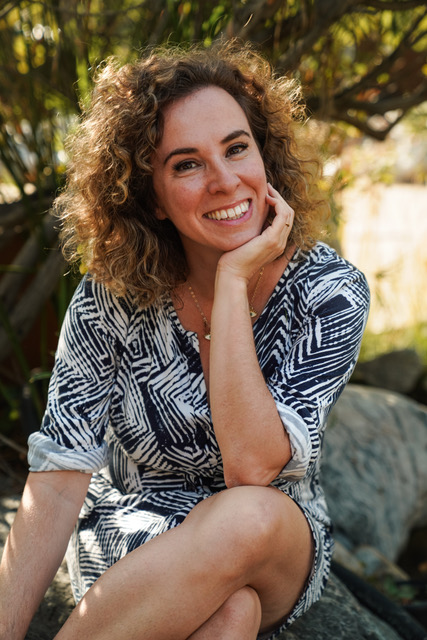 |
|
| Katya Apekina (photo: Lena Rudnick) |
|
Katya Apekina was born in Moscow and moved to the United States as a young child. Her debut novel, The Darker the Water the Uglier the Fish, was widely praised for its originality and willingness to tackle the dark edges of humanity. In addition to writing novels, she has worked as translator and a screenwriter in Los Angeles, where she lives with her husband and daughter. In Mother Doll (Overlook Press), she nests stories within stories--both of individual struggles like becoming a mother and of collective struggles like the Russian Revolution of 1917.
How did you land on Mother Doll as the title?
The title came at the very end. I had a different working title that I didn't like, and I was trying to come up with something. It was actually my agent who suggested Mother Doll, and I agreed that it was perfect. I like that it invokes the baby doll/mother doll element as well as the matryoshka or nesting doll without being so direct about it. It brings in the generational stuff, this idea that we're containing multiples inside of us, that is present in the book. Both in terms of our ancestral experiences but also the different aspects or eras of our own life, that we contain nestled inside of us. And then there's the physical experience of Zhenia being pregnant, so she's literally containing another generation inside of her.
There are unexpected elements in this story, communication with the dead through a medium being one. Was that level of supernatural always present in the work, or did it take that shape as you wrote?
The seed for the book came from my grandmother. She had given her memoirs to me before she died, but I started reading them after she died. So that sense of talking to the dead through a text was an entry point, but I wanted it to feel more alive than an interaction with a text. I wanted it to feel more embodied. Of course, we're constantly haunted by metaphorical ghosts of our ancestors, so I made it literal as a way of exploring that. Mother Doll is talked about sometimes as being a ghost story, which it literally is, but people have expectations from a ghost story that this book is probably going to subvert. The kind of haunting and scary stuff that happens in this book is more about abandonment and generational trauma. And it's also probably more funny than scary in some ways.
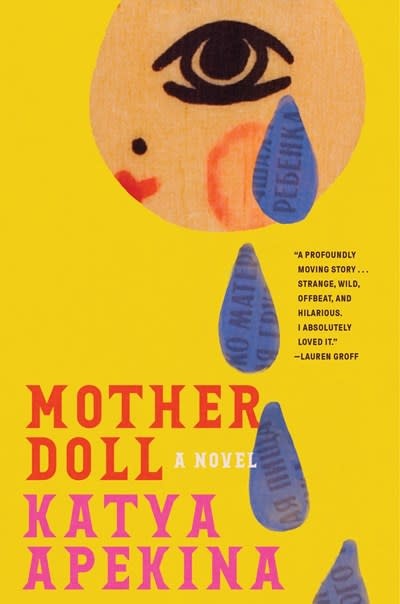 The book does such a good job of showing the act of listening to be a physical, fully engaging process. The medium Paul physically secluded himself in a closet to allow Irina's story to pass through his body into the phone, with Zhenia on the other end to receive it. There are layers of listening here. Do you feel listening is critical to the act of creation?
The book does such a good job of showing the act of listening to be a physical, fully engaging process. The medium Paul physically secluded himself in a closet to allow Irina's story to pass through his body into the phone, with Zhenia on the other end to receive it. There are layers of listening here. Do you feel listening is critical to the act of creation?
Absolutely. As I was writing this book, I was also with my grandfather in his last weeks, and he was dictating his memoir to me. It was this act of receiving, and I was affected physically by the intense listening, by the taking on of another person's story. That bearing witness is not a neutral thing. It does take a lot of energy--emotional and physical energy. So I was thinking about that as I was writing. There's a difference between the listening that might happen as an eavesdropper versus as a journalist who is actively engaging with and taking on the responsibility for someone's story.
I actually took some mediumship classes and psychic meditation classes as research, and it's a strange physical feeling of receiving a story that feels external from you, and you're almost just transcribing. That's what writing sometimes--at its best--feels like. When it works, it feels so good to feel that you have a connection with something outside yourself that you're just letting pass through you.
Becoming a mother changes a person, in obvious and less obvious ways. What would you say are some of those transformational changes?
When I had a daughter of my own, I started thinking concretely about myself as part of this generational chain. Maybe I would have thought about that anyway at a certain time in my life, but for me, having my daughter made me think about my mother's experience, my grandmother's experience. Being on the other side of daughterhood, it made me think a lot about them. Similarly for Zhenia, it helps her begin to process this ancestral trauma that has made her feel like her life has no agency. When this big--almost external--event of having a child happens to her, it forces her to think about things differently, and it leads to her making choices where she begins to be more connected with what it is she wants, with what her desires are.
In the book, desire is often born out of a deep lack of something--food or connection or stability. But there is a more positive form of desire, one born out of a sense of hope. As Zhenia figures out what she wants, does that negative desire transform into something more positive?
At the end, when Zhenia is with Chloe and Anton, the desire she experiences is more hopeful. It's a complicated relationship because it's not very honest, and she's afraid of losing what she has by being honest about it. But the desire there feels satiated. And her relationship with her baby is very joyful and satisfying to her. A lot of times when you read about parenthood, there's a lot of emphasis on how difficult it is, which it is, but it is also often very fun and joyful, and I wanted to show that.
Irina often struggles with her own sense of cowardice, times when she felt she acted bravely and others when she did not. How would you define bravery, especially as seen through some of those different perspectives?
The idea of bravery in the context of the Revolution is one thing. But what does it mean to be brave in the context of Zhenia's life? Maybe it means to live the life that she actually wants and understand what that is. In the beginning of the book she's just doing what's expected of her. When she begins to do things that from the outside might look like a bad idea, but to her, feel like the right thing, that is a form of bravery. Obviously being brave in her life looks very different, but confronting your ancestral baggage is difficult, and it does require courage. To be honest about things requires a certain amount of courage, and it's courage that Zhenia may not have yet, but it seems she will soon. --Sara Beth West
Book Candy
Book Candy
"When François Truffaut made a film adaptation of Ray Bradbury's Fahrenheit 451 (1966)." (vis Open Culture)
---
"Winchester plan for £100,000 [about $127,825] Jane Austen statue triggers 'Disneyfication' fears," the Guardian reported.
---
Barbara Newhall Follett, the "child novelist who later vanished into thin air," was remembered by Mental Floss.
Rediscover
Rediscover: Vernor Vinge
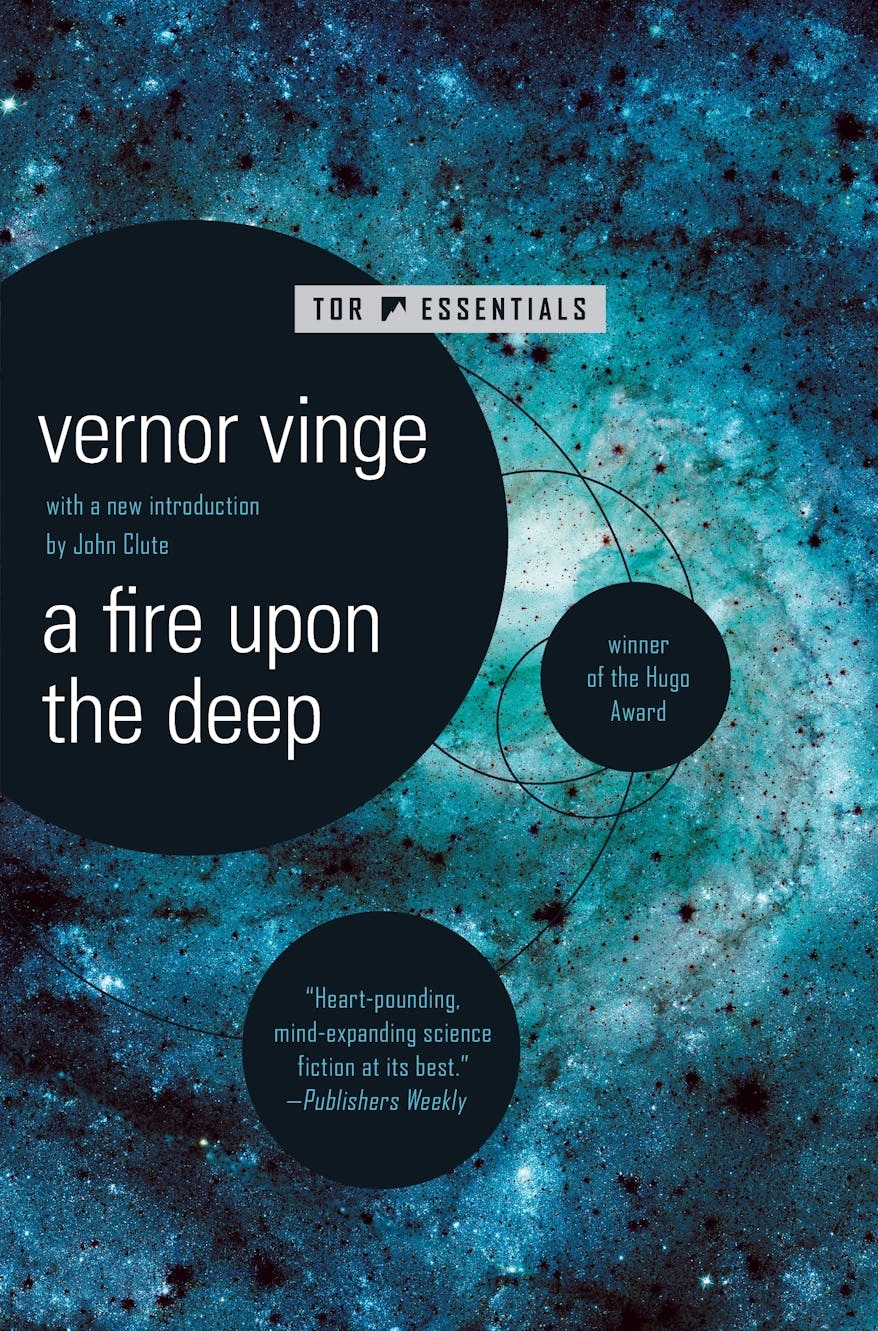 Author and professor of mathematics Vernor Vinge, best known for his "gripping hard science fiction" and introducing the concept of the technological singularity (AKA the Singularity)," died March 20 at age 79, Locus magazine reported. Vinge's debut novel, Grimm's World, was published in 1969. A Fire Upon the Deep (1992), the first book in the Zones of Thought series, won the Hugo Award, while the second title in the series, A Deepness in the Sky (1999), took the Hugo Award, John W. Campbell Memorial Award, and Prometheus Award. The Children of the Sky (2011) was the third novel in the series. Other notable books include Hugo Award winner Rainbows End (2006).
Author and professor of mathematics Vernor Vinge, best known for his "gripping hard science fiction" and introducing the concept of the technological singularity (AKA the Singularity)," died March 20 at age 79, Locus magazine reported. Vinge's debut novel, Grimm's World, was published in 1969. A Fire Upon the Deep (1992), the first book in the Zones of Thought series, won the Hugo Award, while the second title in the series, A Deepness in the Sky (1999), took the Hugo Award, John W. Campbell Memorial Award, and Prometheus Award. The Children of the Sky (2011) was the third novel in the series. Other notable books include Hugo Award winner Rainbows End (2006).
His first published work of science fiction was "Apartness" in 1965. Other notable short fiction includes "Bookworm, Run!" (1966) and "The Peddler's Apprentice," which was written with his wife, Joan D. Vinge (1975). He also published two Hugo Award-winning novellas: Fast Times at Fairmont High (2001) and The Cookie Monster (2003).
His nonfiction work included the 1993 paper "The Coming Technological Singularity: How to Survive in the Post-Human Era," which introduced the concept and greatly influenced post-singularity SF, Locus noted.
In a Facebook post, author David Brin wrote, in part: "A titan in the literary genre that explores a limitless range of potential destinies, Vernor enthralled millions with tales of plausible tomorrows, made all the more vivid by his polymath masteries of language, drama, characters and the implications of science.... Accused by some of a grievous sin--that of 'optimism'--Vernor gave us peerless legends that often depicted human success at overcoming problems... those right in front of us... while posing new ones! New dilemmas that may lie just ahead of our myopic gaze."
| Summer Reads from i like to read® comics |
|
Read what writers are saying about their upcoming titles



